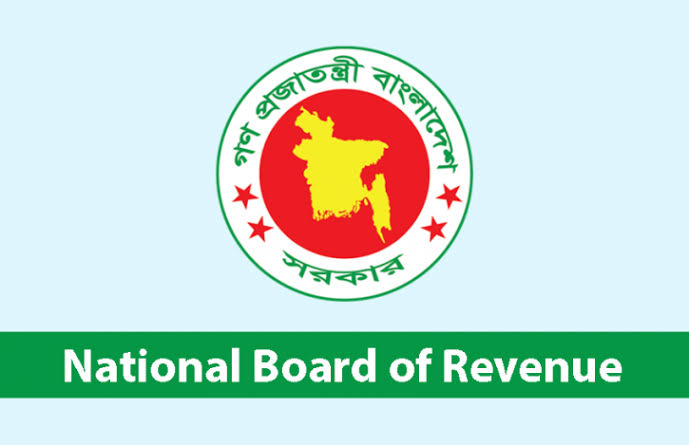As Bangladesh strives towards becoming an economic powerhouse in South Asia, it is essential to acknowledge the pivotal role of a fair and efficient tax system in achieving this vision. A robust tax framework not only serves as a sustainable source of revenue but also ensures social welfare, fosters economic growth, and reduces income inequality. However, Bangladesh faces pressing challenges in its current tax systems, which demand immediate attention and comprehensive reform.
At the crux of the matter lies the issue of regressive taxation. The current tax system relies heavily on indirect taxes, such as value-added tax (VAT), which disproportionately impact lower-income individuals. This exacerbates income inequality and creates an uneven burden on the less privileged segments of society. To understand how regressive taxation works, let’s consider a hypothetical scenario in a region with a 5% sales tax on all goods, including food. Person A earns $30,000 per year and spends $10,000 on groceries annually. Person B earns $100,000 per year and spends $10,000 on groceries annually. Both Person A and Person B pay the same 5% sales tax rate on their groceries, which means they each pay $500 in taxes on groceries. For Person A, the $500 represents 5% of their income, whereas for Person B, it represents only 0.5% of their income. Since the tax rate is the same for everyone regardless of their income level, it disproportionately affects lower-income individuals who tend to spend a larger portion of their income on these essential items.
To address this concern, a shift towards progressive taxation is critical. Introducing a tiered tax structure with higher rates for higher-income earners would ensure a fairer distribution of the tax burden, allowing the government to generate revenue while promoting social equity.
Additionally, targeted tax credits and exemptions can play a pivotal role in uplifting vulnerable sections of society. For instance, providing tax relief to low-income individuals and families can significantly alleviate financial strain and create a more inclusive economy. Furthermore, focusing on investments in education, healthcare, and social welfare programs can augment the positive impact of these tax credits, lifting millions out of poverty and fostering human capital development.
The informal economy presents another significant challenge to Bangladesh’s tax systems. A substantial portion of economic activity remains unreported, leading to significant revenue leakages for the government. Effectively addressing this issue necessitates a two-pronged approach: enhancing tax enforcement and encouraging formalization. Strengthening tax administration by adopting modern technologies, such as data analytics and artificial intelligence, can bolster compliance efforts and identify tax evaders. For instance, AI can analyze economic and financial data to predict tax revenue trends, assisting governments in better fiscal planning and budgeting and provide taxpayers with personalized guidance and answers to their tax-related queries, improving taxpayer compliance and understanding.
Simplifying the tax code is equally paramount in promoting transparency and ease of compliance. The current tax regulations are convoluted and labyrinthine, leading to confusion among taxpayers and administrative inefficiencies. A streamlined tax code, with fewer exemptions and deductions, will not only improve compliance rates but also make the system more accessible and comprehensible to all stakeholders.
Moreover, broadening the tax base is crucial to enhance revenue collection. While the government has made commendable efforts to expand the tax net, there are still untapped sectors and income sources that remain outside the purview of taxation. Identifying these areas and bringing them into the formal tax net will not only increase revenue streams but also create a level playing field for all economic actors.
Investing in tax administration and improving governance is essential for the long-term success of tax reforms. Capacity building for tax officials, coupled with stringent checks and balances, will help reduce corruption and ensure the equitable application of tax laws. Moreover, fostering a culture of transparency and accountability within the tax administration will foster trust between taxpayers and the government, enhancing voluntary compliance.
Furthermore, the tax-to-GDP ratio in Bangladesh is considerably lower compared to countries with similar economic profiles. Bangladesh’s tax-GDP ratio stands at a modest 9.3 per cent, significantly lower than the average of developing nations, which is 15 per cent. The main reason behind this disparity lies in the challenges of tax compliance, affecting both income tax and value-added tax (VAT). These two crucial sources contribute around 85 per cent of the revenue collection for the National Board of Revenue (NBR). Addressing this issue could unlock substantial financial potential for the country’s growth and development.
Increasing revenue generation is pivotal to funding essential public services and infrastructure development. The government should focus on optimizing its revenue collection efforts through diligent tax audits, rigorous data analysis, and targeted enforcement.
Beyond these immediate challenges, the tax reform process must incorporate public participation and civil society engagement. Building consensus and garnering support from all stakeholders will ensure the success and sustainability of proposed reforms. Public consultations, transparent dialogue, and citizen involvement will foster a sense of ownership and responsibility among taxpayers, further motivating them to contribute towards the nation’s progress willingly.
Bangladesh stands at a crucial juncture in shaping its tax systems for a prosperous and equitable future. By addressing the issues of regressive taxation, informal economy, complexity, and narrow tax base, the government can create a more efficient and just tax framework. Embracing progressive taxation, targeted credits, and incentives for formalization will foster economic growth, social welfare, and income equality. Investing in tax administration and improving governance will enhance revenue collection and foster public trust.
As a collective effort, the reform of Bangladesh’s tax systems is not just a financial necessity; it is a moral imperative to ensure a brighter future for all citizens. By implementing these transformative reforms, Bangladesh can unlock its full potential, becoming a beacon of progress and prosperity in the region. The time for action is now, and together, we can pave the way for a new era of prosperity and inclusivity for all Bangladeshis.



 For all latest articles, follow on Google News
For all latest articles, follow on Google News